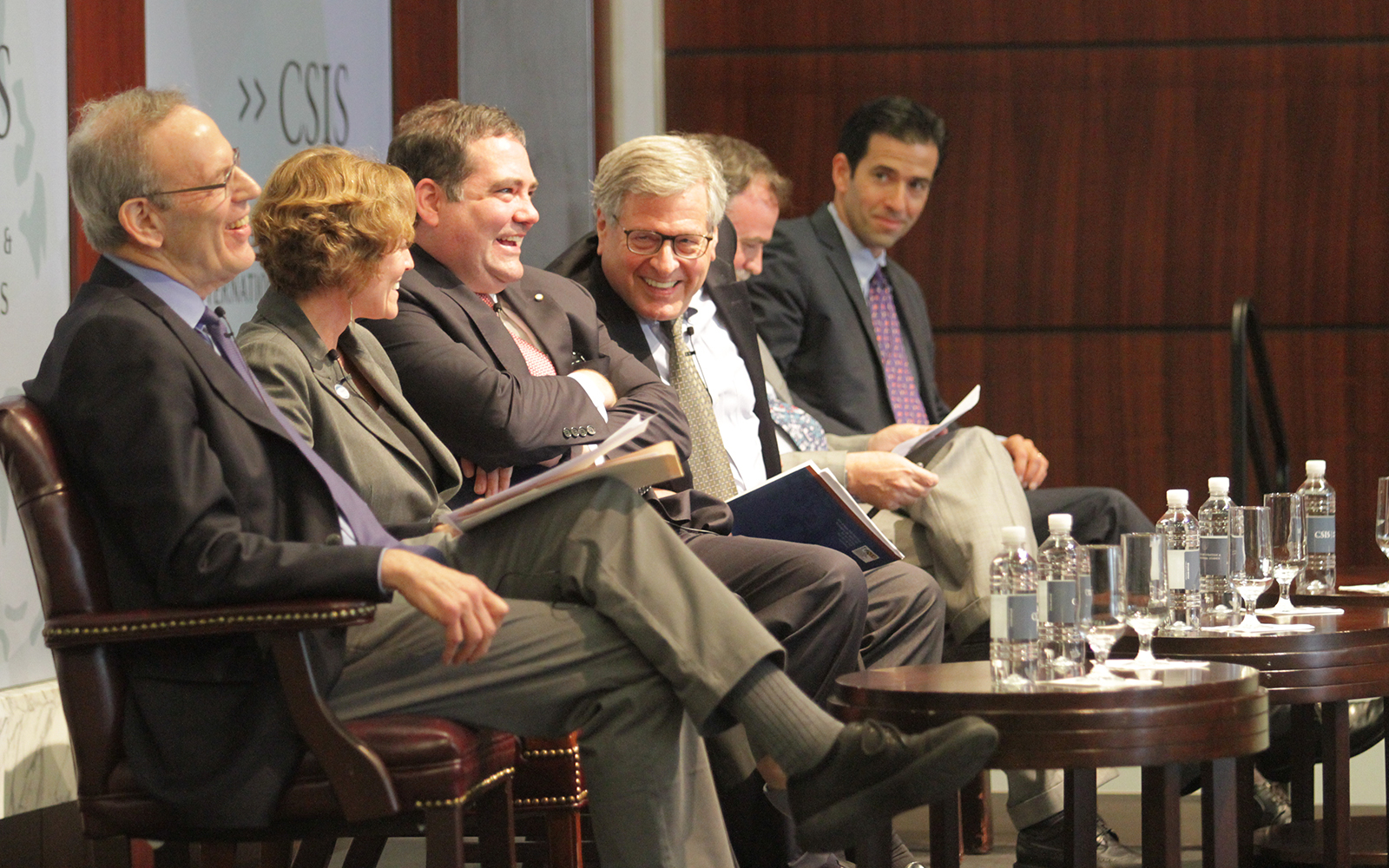
Photo courtesy of the Center for Strategic and International Studies
SHARE
ISSUES
The leaders of the National Endowment for Democracy (NED) and its four core institutes appeared together on stage last week to talk about their work on behalf of democracy, free enterprise and workers’ rights. Speaking to a capacity crowd at a panel discussion hosted by the Center for Strategic and International Studies (CSIS) in Washington, titled “Supporting Democracy in Challenging Times,” the group underscored how each of those areas represents a critical domain within free societies and highlighted the need for a holistic approach to the development of sustainable representative governance. The institutes’ work is particularly important, they said, in the context of what some scholars have deemed the current “democratic recession,” the ongoing attempts by authoritarian leaders to subvert democracy and stall its expansion, and the increasing competition from alternative political and economic models promoted by non-democratic states such as China.
During his remarks, NDI’s president Ken Wollack acknowledged those challenges but also highlighted numerous recent democracy success stories, listing almost a dozen nations – including Armenia, Malaysia and The Gambia – that have taken significant steps forward towards democratization within just the past year. Wollack said those examples demonstrate the strong demand from citizens for democracy and open governance, and noted that history shows that states committed to democracy are better equipped to deal with political and economic challenges if and when they arise.
“If you look at the liberalizers, the reformers, and the transformers, these are the places that are...handling political and economic challenges better than the countries that are run by autocrats.”
The other panel speakers included Carl Gershman, president of the National Endowment for Democracy; Daniel Twining, president of NDI’s sibling organization the International Republican Institute; Andrew Wilson, executive director of the Center for International Private Enterprise (which promotes ethical business practices and free-market economic structures); and Shawna Bader-Blau, executive direction of the Solidarity Center (which works to protect the rights of laborers).
Ms. Bader-Blau said the that the organizations play a crucial role in helping bring citizens, activists, politicians and other stakeholders together in pursuit of common goals – often in places where the space for activism is limited or restricted.
“No democracy was ever made when a government just woke up and said ‘lets be a democracy today’,” she said. “No market was fair because money just rained down and it rained down fairly. People coming together make democracy and make economies more fair. It’s movements of people joining together using all the tools at [their] disposal that advances democracy. And that’s what you get when your’re talking about the core institutes of the NED. We are connected at the grassroots.”
Each of the five leaders talked about how their particular organization contributes to the NED’s mission of helping citizens build sustainable self-government that delivers results. In the case of NDI, Mr. Wollack explained that the Institute connects people to political leaders and provides conduits for the transference of political sentiment, and thus the transference of power from the grassroots up to the halls of government.
“Oftentimes in the international community, the view is you have governments and you have civil society,” Wollack said. “And what is normally left out of the equation, or marginalized in the process, are intermediary organizations – institutions that represent the people, that aggregate the interests of the citizens. When these institutions fail – the political parties, the parliament – usually the entire democratic system is going to fail.”
“NDI and IRI began with this notion of believing in democratic politics as part of human development and as part of democratic architecture of a country… Everything our institutes do when we work on elections, when we work with civil society, when we work with parliament, when we work with women is about political engagement.”
CSIS is a bipartisan, nonprofit policy research institution that employs over 100 top experts in international development, defense and security, human rights and other key global issues. The panel conversation was moderated by CSIS Senior Vice President Daniel F. Runde, who recently interviewed Mr. Wollack on an episode of the Building the Future podcast titled “Delivering on Democracy.”


